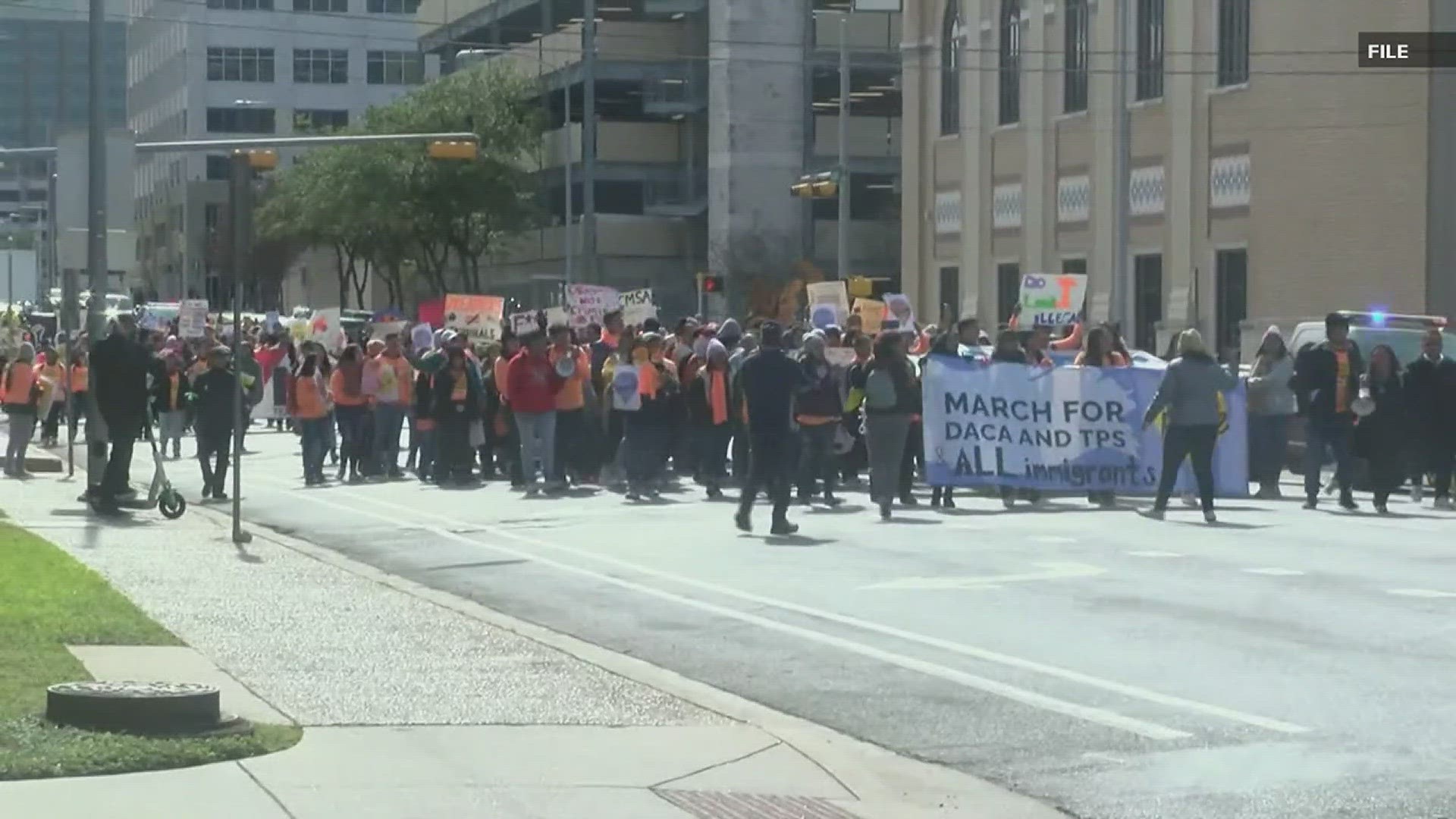BEAUMONT, Texas — A federal judge declared on Wednesday that the Deferred Action for Childhood Arrivals, or DACA, program is illegal.
The issue is now heading back to the U.S. Supreme Court for a third time.
For now this does not affect people already in the program but it does keep the government from accepting new applications.
This is a major concern to Southeast Texas families especially those where the main breadwinner is a DACA recipient, according to Catholic Diocese of Beaumont Multicultural Ministry Co-Director Jesus Abrego.
“Yesterday I got two texts from two of my young adults asking me 'Hey, what's going on with DACA? Do you know what's going to happen?' Again the psychological aspect is big because they are here. Some of the kids have been here since the time they were one or two or three years old," Abrego said.
The program began in 2012 under the Obama administration and currently covers around 600,000 young adults, commonly referred to as Dreamers.
These are people who were illegally brought to the U.S. as children. 17% of DACA recipients reside in the State of Texas.
At the Catholic Diocese of Beaumont, the Office of Multicultural Ministry works to assist families impacted by DACA.
Abrego tells 12News Dreamers are about to enter a period of uncertainty. He worries about the psychological anguish and fear they'll face.
"Our immigration system really needs to be updated by the U.S. Congress, so hopefully something is going to happen soon so these people won't live in limbo out of the fear of being deported back to a country they don't even know. They don't even remember," said Abrego.
Under DACA, people have been protected from deportation and granted work authorization for the past 11 years.
Texas is one of nine states involved in a lawsuit. along with Alabama, Arkansas, Louisiana, Nebraska, South Carolina, West Virginia, Kansas and Mississippi.
The states claim the program costs hundreds of millions of dollars in health care, education and other costs.
Those defending the program include the federal government, the Mexican American Legal Defense and Educational Fund and the state of New Jersey. They argue the states failed to present evidence that any of the costs they allege they have incurred have been tied to DACA recipients.

